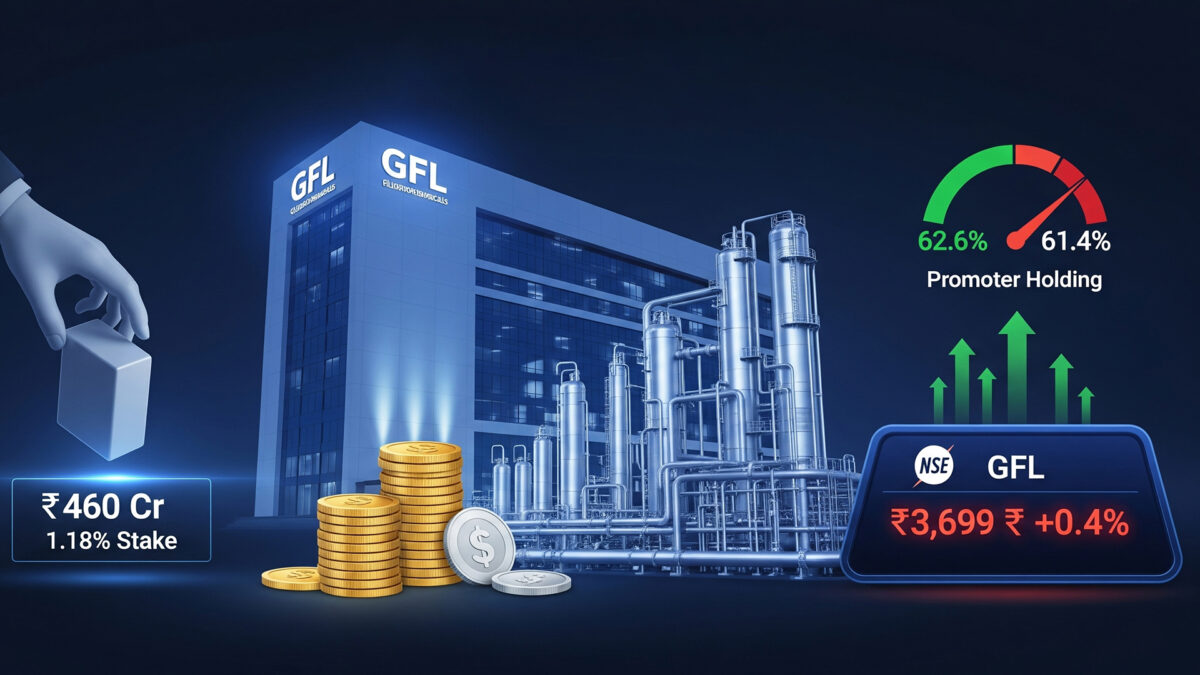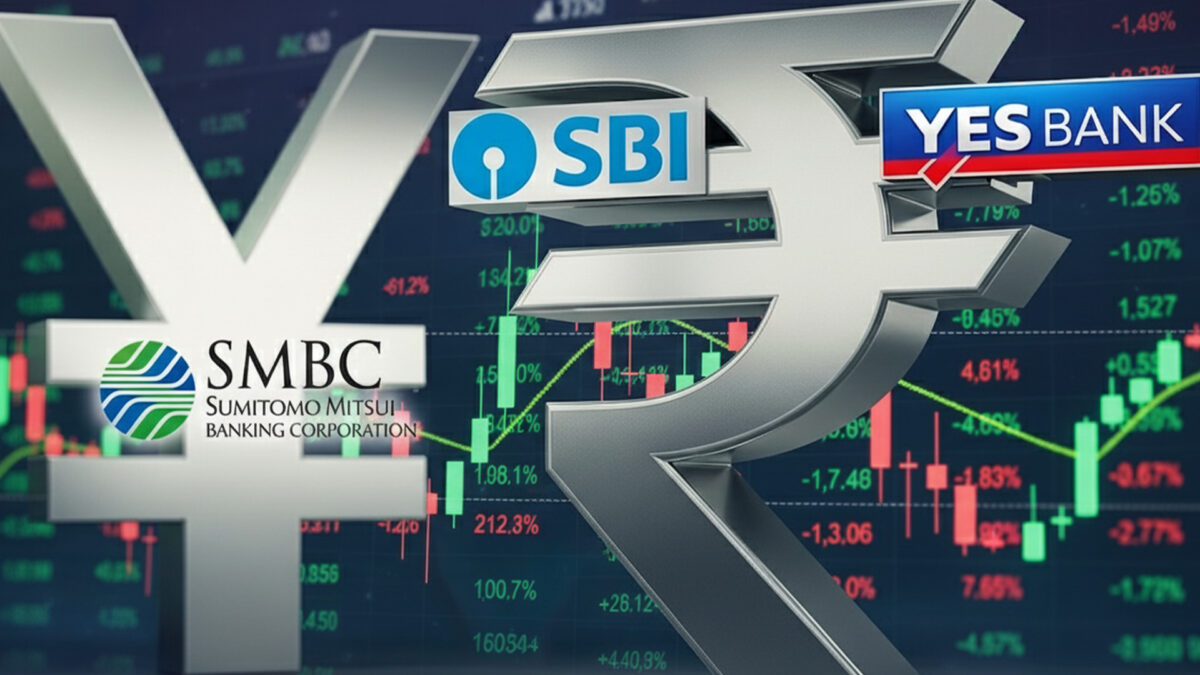New Delhi: Devansh Trademart LLP, one of the promoters of Gujarat Fluorochemicals (GFL), has sold a 1.18% stake in the company through an open market transaction valued at approximately ₹460.11 crore. The divestment, executed on September 17, 2025, involved the sale of 13 lakh equity shares at ₹3,539.30 per share on the National Stock Exchange.
Prior to the sale, Devansh Trademart held about 4.84% of the equity. The transaction reduces its shareholding to approximately 3.66%, while the combined promoter group’s stake in GFL drops from around 62.58% to about 61.40%. The buyers of the shares have not been identified in the public filings.
On the trading front, Gujarat Fluorochemicals’ stock saw a modest rise. Shares closed at roughly ₹3,699 per share on the NSE following the announcement.
What the Stake Sale Means
The sale marks a notable shift in promoter shareholding, a move that often attracts investor attention in companies with strong promoter-led control. While Devansh Trademart’s stake is still meaningful, the reduction underscores a possibility that promoter exits—or at least partial divestments—are becoming more frequent.
For investors, these kinds of large promoter sales can trigger mixed reactions. On one hand, there could be concern about why the promoter is selling—whether it’s for capital raising, debt repayment, or diversification of assets. On the other hand, if the company’s fundamentals remain intact, such sales might simply reflect financial strategy or compliance pressures.
GFL operates in speciality chemicals, refrigerants, fluoropolymers and industrial chemicals, and has been expanding into fluoropolymer capacities. Its product lines serve both domestic and international markets. For companies in such sectors, promoter holding changes are often scrutinised for signs of confidence in future prospects.
Market Outlook
Regulatory norms under the Securities and Exchange Board of India (SEBI) require disclosures of substantial ownership changes, and the reduction in stake by Devansh Trademart has been duly disclosed in exchange data.
In terms of risk, market participants will be watching for any further promoter sales, since attrition of promoter shareholding over time can impact perceptions of control and governance. Additionally, if the market interprets the sale as a signal of concern, the stock may come under pressure. But in this case, the share price moved only marginally—which suggests that investors may view the sale as a one-off rather than a signal of trouble.
Devansh Trademart’s sale of a 1.18% stake for about ₹460 crore in Gujarat Fluorochemicals is a significant promoter-divestment transaction. While it reduces both its own holding and the promoter group’s overall control, it doesn’t fundamentally alter the ownership structure. For shareholders, the key question will be whether this move was driven by strategy rather than necessity, and how GFL performs going forward in its chemicals and fluoropolymer businesses.
Also Read: Former Lodha Developers Director Arrested in ₹85 Crore Land-Fraud









